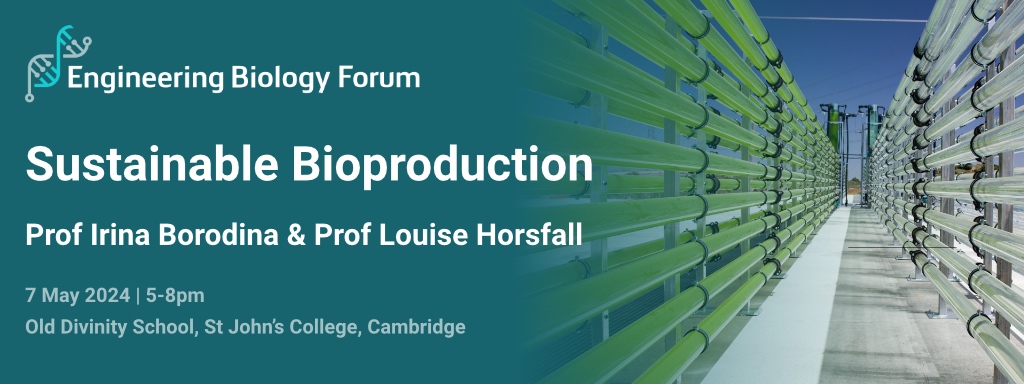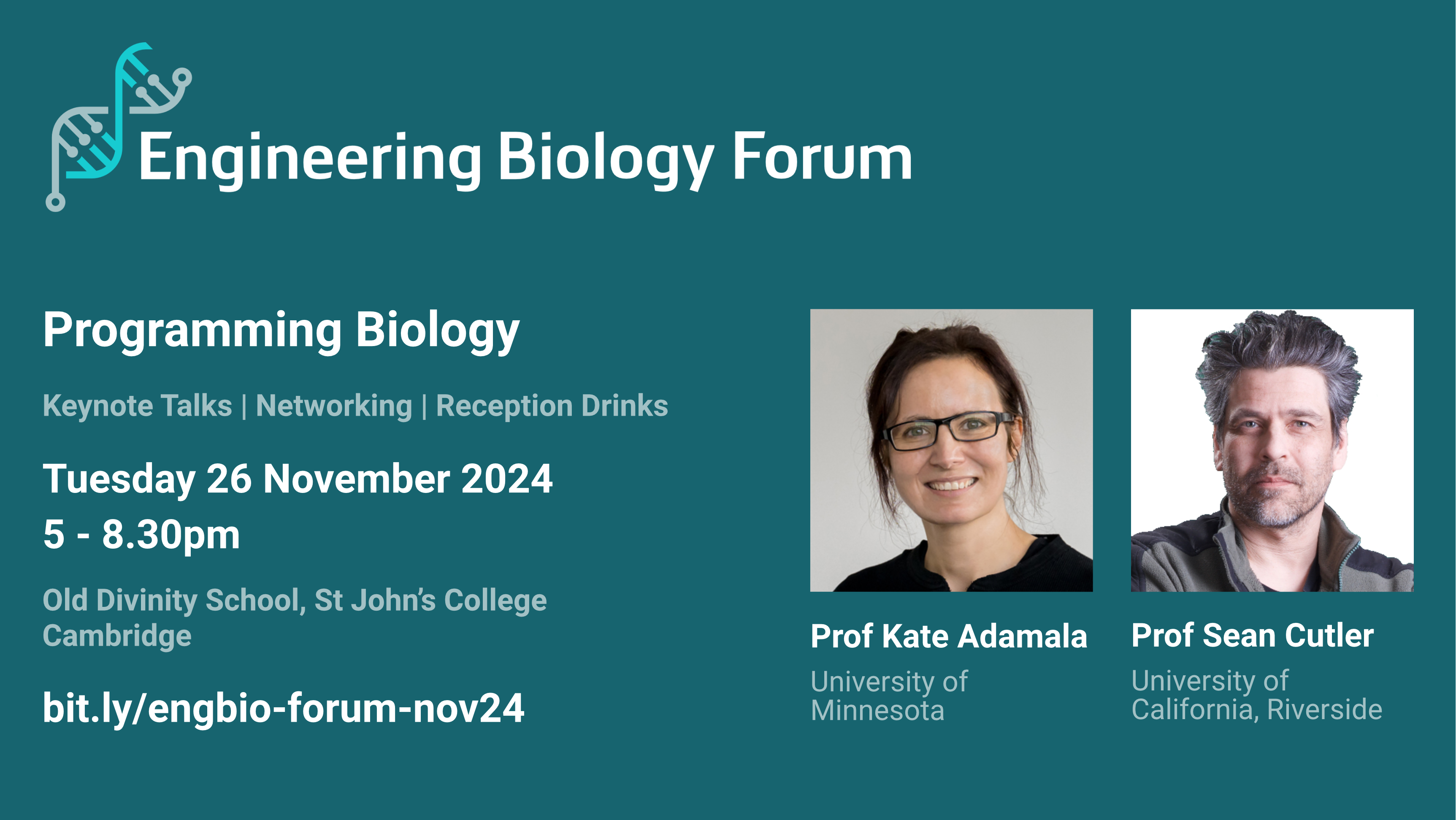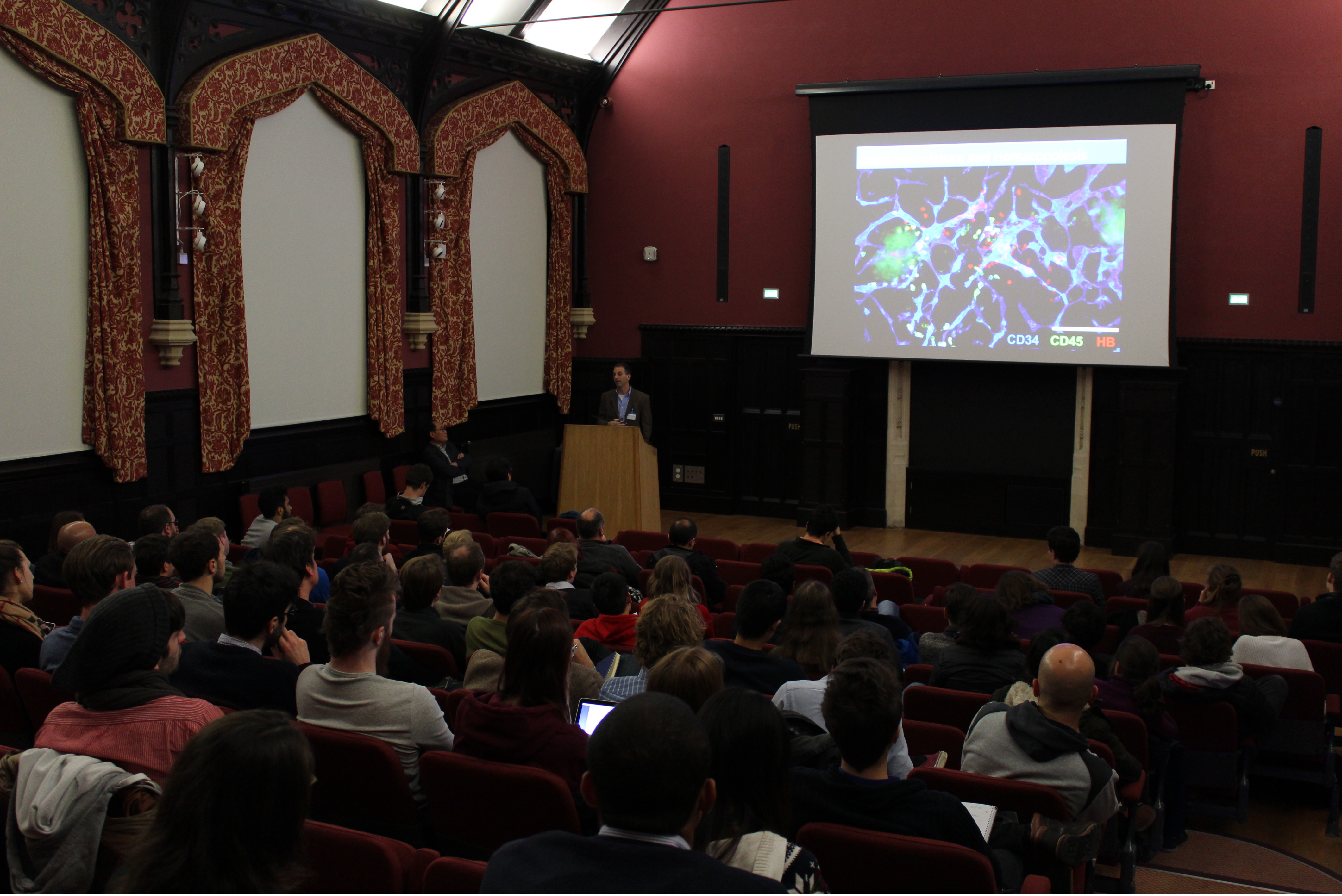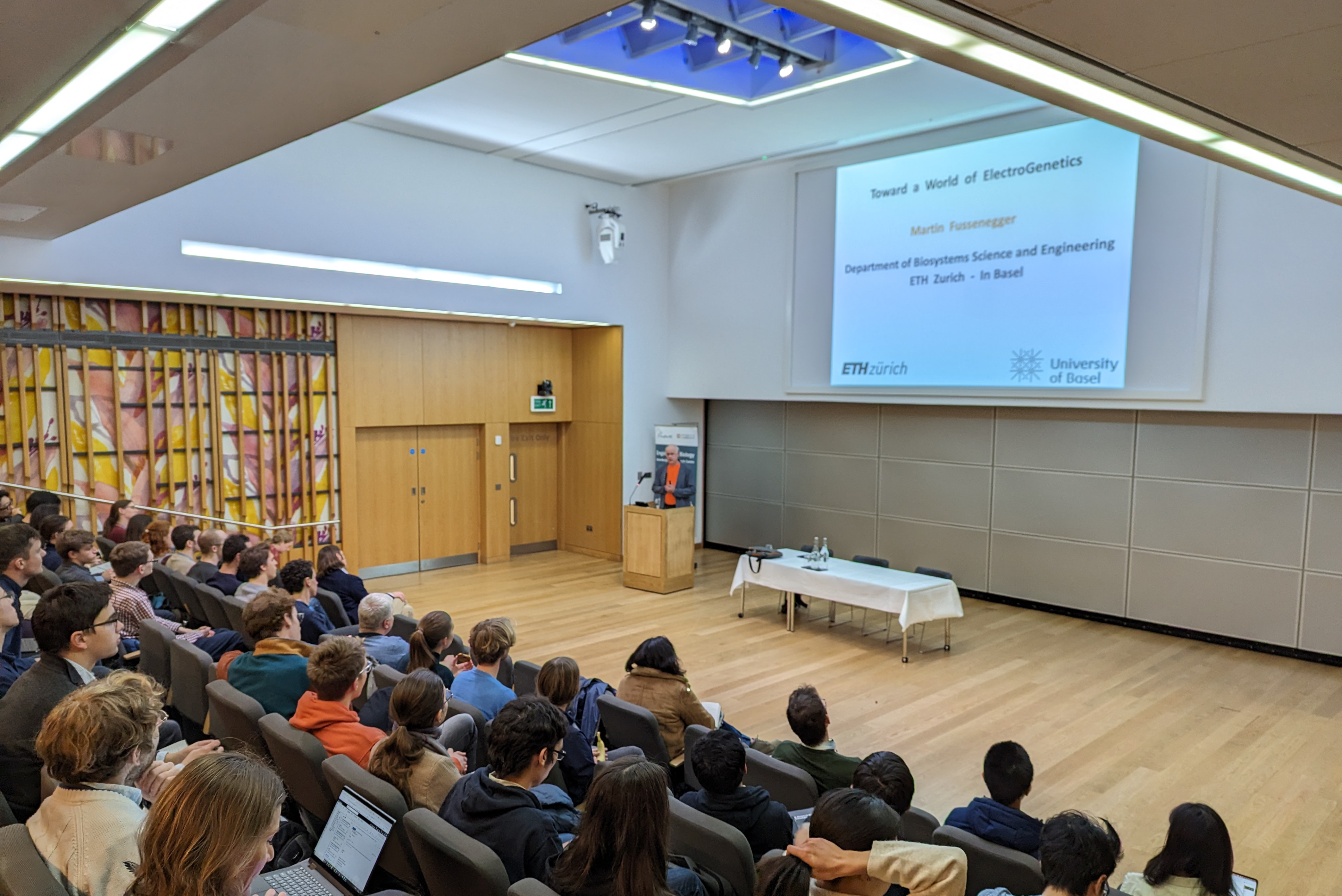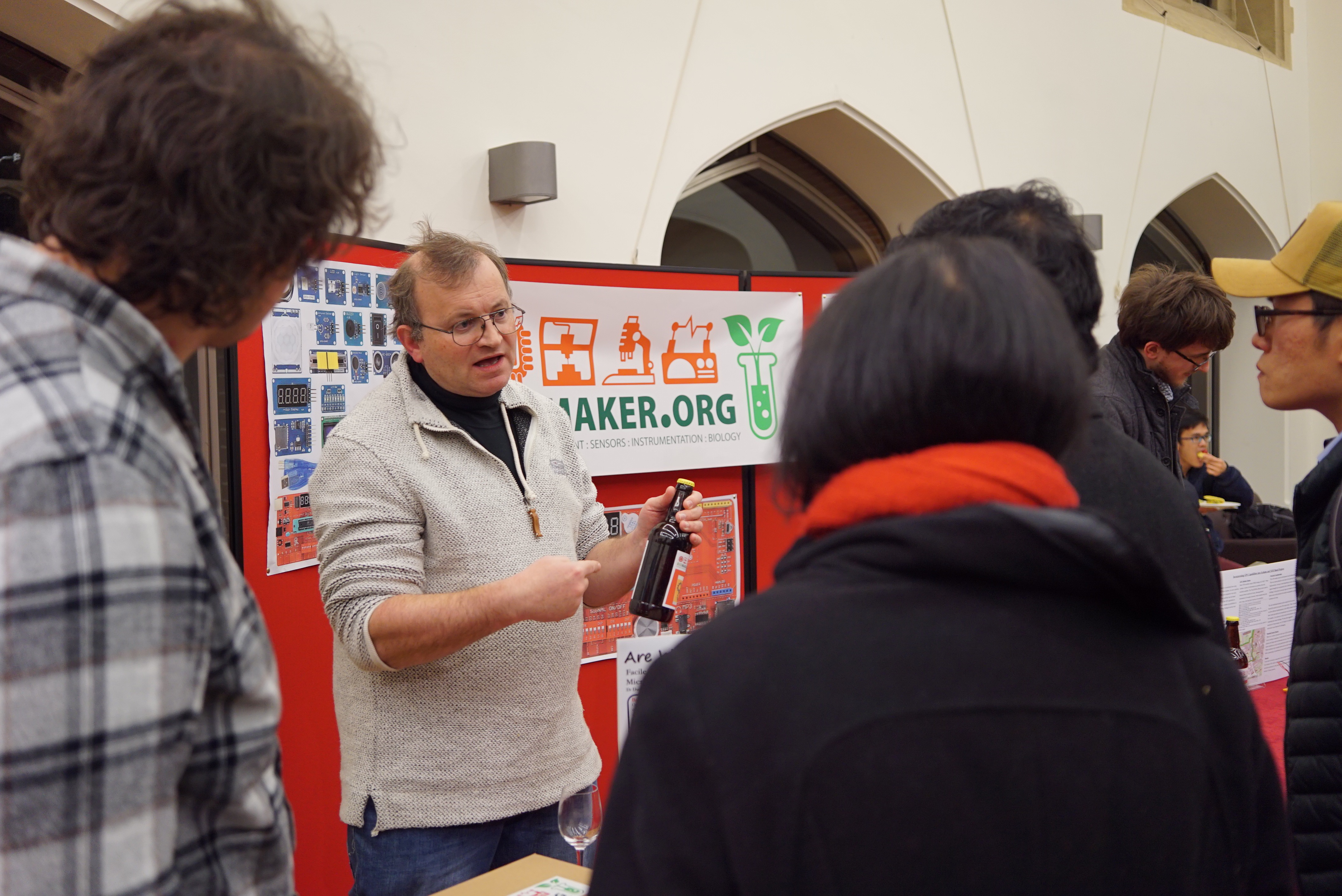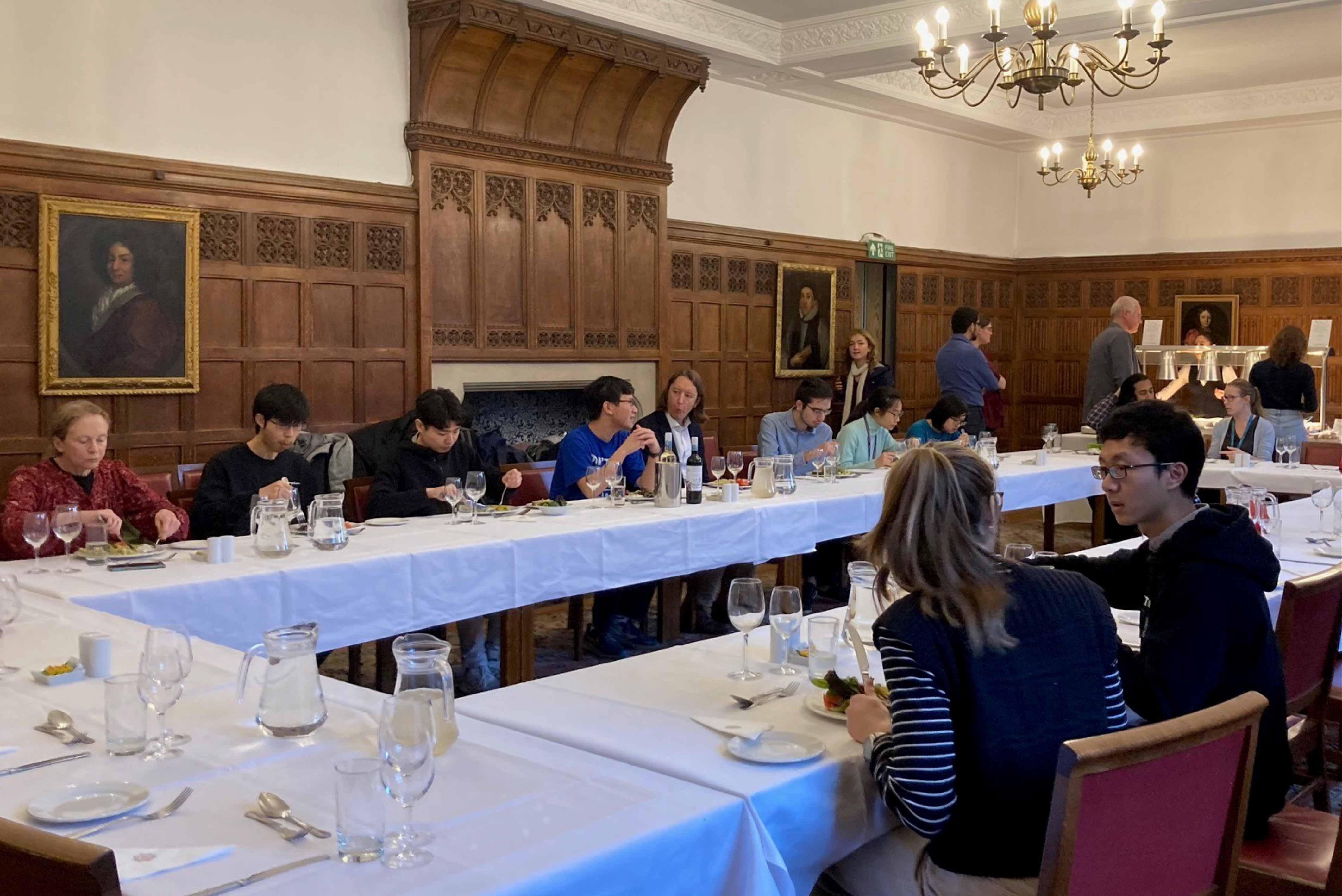
The EngBio Forum is a series of flagship events with prominent external speakers and excellent networking opportunities: a great opportunity to learn more about cutting edge synthetic and engineering biology.
The Engineering Biology Forums are a series of talks exploring key tools for the future of engineering biology and biotechnology. Hosted by the Engineering Biology Interdisciplinary Research Centre at the University of Cambridge, the forums take place termly at the Old Divinity School, St John’s College or the McGrath Centre, St Catharine’s College.
The events feature two keynote lectures and a discussion session. This is followed by a drinks reception and canapes. Some events also include a mini-fair of demonstrations, exhibitions and information showcasing scientific excellence from around the Cambridge engineering biology community.
Alongside the Forums we often host speaker lunches as an opportunity to meet and discuss with our guest speakers. The lunches are free and open to all University staff and students. Early career researchers (PhD students, postdocs etc.) are particularly welcome.
EngBio IRC Forum 'Engineering Biology for Sustainable Bioproduction' 7 May 2025
Registration is now open for our next Engineering Biology Forum on Wednesday 7 May
We are delighted to be welcoming keynote talks from Professor Irina Borodina, The Novo Nordisk Foundation Center for Biosustainability Technical University of Denmark, and Prof Louise Horsfall, Chair of Sustainable Biotechnology, University of Edinburgh, both leading experts in the field of sustainable bioproduction. The talks will be held at the Old Divinity School, St John’s College, Cambridge, and will be followed by a drinks reception, canapés and networking.
Register here
Venue: Old Divinity School, St John's College, Cambridge
Time: 5pm-8.30pm
Last Event: EngBio Forum Tuesday 26 November, 5-8.30pm at Old Divinity School, St John's College
This November we have 2 Keynote Lectures featuring:
Professor Kate Adamala, University of Minnesota
Life but not alive: the biology of synthetic cells
Professor Sean Cutler, University of California, Riverside
Programmable plants: engineering chemically regulated switches for dynamic control of plant phenotypes
Past Events
Past speakers have included Nobel Prize winner Prof. Stefan Hell, Prof. Jim Collins, Prof. David Baker, Prof. Jennifer Lippencott-Schwartz and Prof. Mike Jewett. Topics have ranged from Programmable Cell Extracts to Super-Resolution Microscopy.
| EngBio Forum November 2016 held at the Old Divinity School, St. John’s College | EngBio Forum November 2023 held at the McGrath Centre, St. Catharine’s College |
| Biomaker exhibit at the EngBio Forum mini-fair February 2019 | ECR-Speaker Lunch November 2023 held in the Senior Combination Room, St. Catharine’s College |


